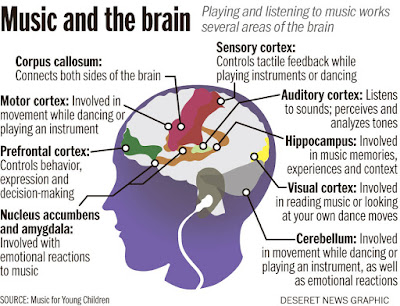Most of us can say yes to all of these questions, and it is no coincidence. Music is powerful. It activates the brain in very unique ways. It has been proven to illuminate brain activity in the movement, attention, planning, and memory parts of the brain, even though those parts of the brain have little to do with the auditory processing center of the brain. Scientists have also found that listening to music can actually instigate the release of dopamine, which is responsible for rewards and pleasure in the brain. It has even been seen as more effective in lowering Cortisol than anti-anxiety drugs when ‘administered’ before surgery. Few other actions can produce this level of integration in the brain.
Perhaps the most powerful example of music’s impact on the brain is the recent movement of music therapy for patients with Alzheimer’s disease and dementia. Scientists and therapists are finding that music can reawaken the brain for these patients, and bring them into a much more communicative state. The brain activates, the memory returns, emotions pour out, and he is energized. In other words, the different parts of his brain all kick in. This all happens when he hears his favorite artists!




